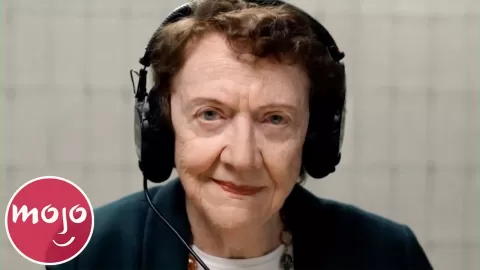Mastermind: To Think Like a Killer - The Untold Story of Ann Burgess

The Untold Story of Ann Burgess Mastermind: To Think Like a Killer
Welcome to MsMojo, and today we’re discussing the trailblazing career of forensic nurse, university professor, and criminal mind expert, Ann Wolbert Burgess.
Early Life & Career
Ann C. Wolbert Burgess, born on October 2, 1936, was destined to enter the medical field. Growing up, the Massachusetts native had hands-on experience aiding one of her doctor uncles deliver babies. When it was time for college, she enrolled in Boston University’s nursing program and earned her Bachelor of Science degree. After graduating from the University of Maryland with a Master’s, she returned to BU to complete her doctorate in nursing science.
As Burgess did her clinical work at Spring Grove State Hospital in Maryland, her interest in human behavior only grew.
Academia & Research
Ann Burgess became an assistant professor at Boston College’s William F. Connell School of Nursing in 1969. As she continued working with victims of violent crimes, she met sociologist Lynda Lytle Holmstrom, whom she credits with fully introducing her to the world of academic research. The two women conducted a study focused on the prolonged physical and psychological trauma of sexual assault victims, who were stigmatized and often faced judgment instead of justice. Their goal was to shed light on the importance of victims, especially in the male-dominated fields of law enforcement and the criminal justice system.
Burgess and Holmstrom organized a hospital-based crisis counseling program at Boston City Hospital, one of the first of its kind. Here, they analyzed 146 victims across a wide age range and determined that offenders sought power and control rather than sexual gratification. In the early-to-mid 1970s, they published their revolutionary findings in the American Journal of Nursing. This challenged the cultural perception of sexual assault and heavily influenced the assessment and treatment of victims.
Because this was during the women’s movement, their study gained recognition in other fields. Over in California, a female police officer, who also worked as a nurse, brought it to the attention of Special Agent Roy Hazelwood, which sparked an interest from the Federal Bureau of Investigation.
Mindhunting with the FBI
The 1970s saw a rise in sexual crimes with little to no apprehension of offenders, and the FBI knew they needed to implement new training of their agents and law enforcement offices. In 1978, Burgess received a surprising call from Roy Hazelwood, who then-Director William Webster asked to invite her to give lectures at their Academy in Quantico, Virginia. She taught their agents about victimology, particularly women who endured violent crimes.
Meanwhile, in the offices of the FBI’s Behavioral Science Unit (BSU), they were already working on a criminal personality study. Special Agents John Douglas and Robert Ressler did “road school,” traveling to local police departments and educating them in criminal psychology. As a side project, they began conducting interviews with convicted murderers behind bars, including Edmund Kemper, aka “The Co-Ed Killer.” In 1980, Burgess joined them and brought not only her expertise and perspective but also helped them develop a methodology and organize their data. They interviewed and studied 36 serial killers, finding patterns of abnormal behavior and categorizing them as organized and disorganized.
Other departments, including higher-ups in the bureau, paid little attention to profiling, something Though Burgess also faced in her sexual assault study. But the BSU still received dozens of inquiries from local investigators who needed help with solving difficult cases. One such case came in 1983, involving the abductions and murders of two young boys in Nebraska. Their profile helped apprehend serial killer John Joseph Joubert IV, and later connected him to earlier unsolved murder in Maine.
Burgess, Douglas, and Ressler also published 1988’s “Sexual Homicide: Patterns and Motives,” followed by 1992’s “Crime Classification Manual: A Standard System for Investigating and Classifying Violent Crime.”
